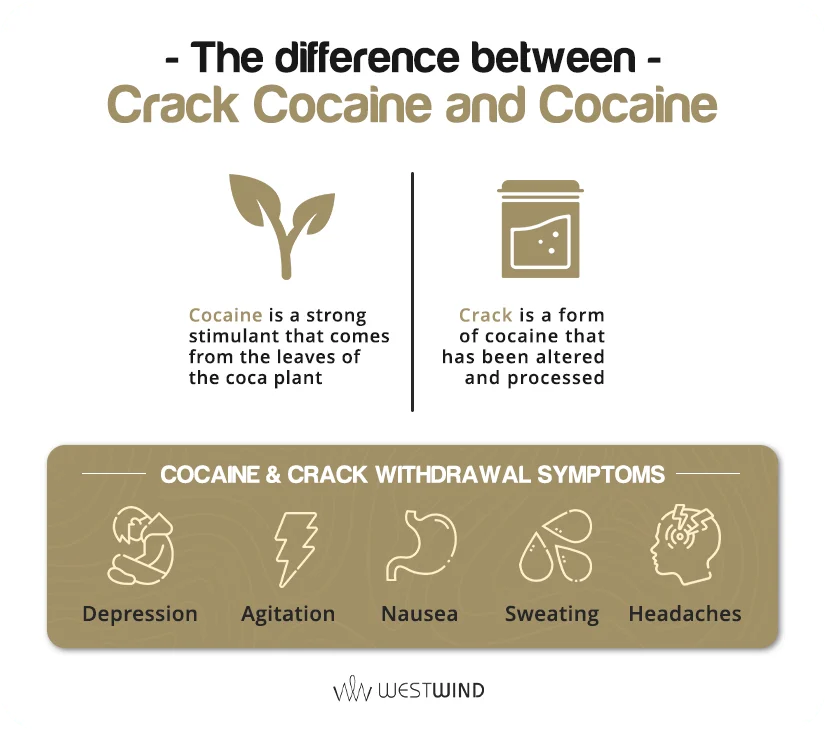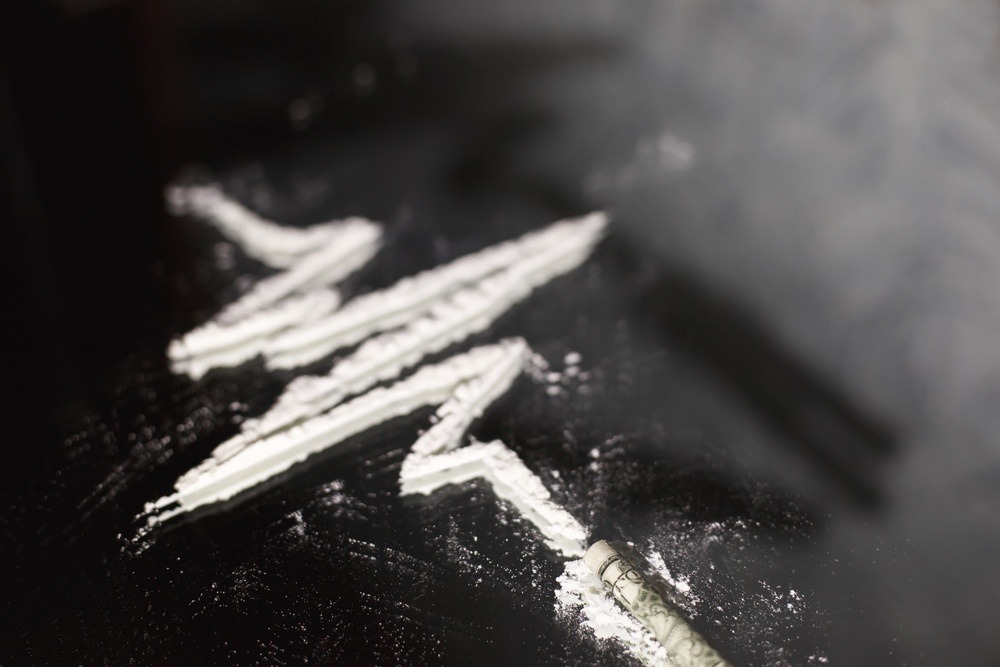Crack cocaine is a potent form of cocaine that is made by processing the drug with baking soda or ammonia. Crack cocaine first hit the streets in the early 1980s and quickly became known as a powerful and addictive drug. The crack epidemic of the 1980s and 1990s had a devastating impact on inner-city communities across the United States.
Unfortunately, there are many people that still abuse both cocaine and crack cocaine. Addiction and cocaine abuse can cause many negative side effects to a person’s mind, body, and life in general. The consequences of crack cocaine can also be fatal in some cases. If you or a loved one is dealing with cocaine addiction or abuse, Westwind Recovery® is here to help. Our comprehensive treatment programs are designed with you in mind.
What Is Cocaine?
Cocaine is a powerful stimulant that comes from the leaves of the coca plant. It can be snorted, injected, or smoked. The substance is a hydrochloride salt in its powdered form. There are several differences between crack and cocaine as well. It typically comes in a powdery, white form.
Smoking crack cocaine produces a short, intense high that is followed by an immediate crash and there are several short and long-term effects involved. Signs and symptoms of crack cocaine use include:
- Euphoria
- A sense of well-being and power
- Increased alertness and energy
- Paranoia
- Aggression
- Anxiety
- Restlessness
What Is Crack Cocaine?
Crack is a form of cocaine that has been processed to make it more potent. It is usually sold in the form of rocks or crystals that can be smoked. Crack cocaine is highly addictive and can have serious side effects, including:
- Restlessness
- Anxiety
- Paranoia
- Aggression
- Violent behavior
- Auditory and visual hallucinations
Withdrawal from crack cocaine can lead to symptoms such as:
- Depression
- Anxiety
- Fatigue
- Irritability
- Intense cravings for the drug
Treatment for crack cocaine addiction typically includes counseling and behavioral therapy, as well as medication to help manage withdrawal symptoms. If you or someone you know is struggling with addiction, please reach out for help.
The Effects and Risks of Crack vs. Cocaine Use

Crack cocaine and powder cocaine are two forms of the same drug. The difference lies in their chemical makeup and how they’re used. As previously mentioned, crack is made by cooking cocaine powder with water and baking soda, which forms hardened “rocks” that can be smoked.
Crack cocaine is cheaper and more potent than powder cocaine, making it more addictive. Smoking crack cocaine also results in a quicker and more intense high than snorting powder cocaine. The effects of both drugs are similar, but because crack is more potent, the risks are greater.
Both crack and powder cocaine can lead to:
- Euphoria
- Increased energy and alertness
- Increased heart rate and blood pressure
- Irritability and anxiety
- Paranoia
- Restlessness and tremors
- Aggressive or violent behavior
But because crack is more potent, it can also lead to:
- Heart attack or stroke
- Respiratory problems
- Seizures
Treatment for Crack Cocaine Addiction
 It is important to get help for both substances due to their addictive nature and the consequences of abuse. Westwind Recovery® can offer you the safe haven you need to get professional help from experts in the field. Cocaine/crack addiction can be brutal for everyone involved, and you don’t have to go through it alone.
It is important to get help for both substances due to their addictive nature and the consequences of abuse. Westwind Recovery® can offer you the safe haven you need to get professional help from experts in the field. Cocaine/crack addiction can be brutal for everyone involved, and you don’t have to go through it alone.
If you or someone you love is addicted to crack or cocaine, there is help available. Treatment for cocaine addiction typically includes behavioral therapy and counseling, as well as medication to manage withdrawal symptoms. With treatment, it is possible to recover from a cocaine addiction and live a healthy, drug-free life.
Cocaine and Crack Detox
Detox is the process of allowing the body to rid itself of a substance. When someone stops using cocaine, they may experience withdrawal symptoms as their body adjusts. Withdrawal symptoms can include:
- Depression
- Anxiety
- Fatigue
- Irritability
- Headaches
- Muscle aches and pains
- Increased appetite
- Drug cravings
While detox is not a formal treatment for addiction, it can be an important first step in the recovery process. After detox, you will be better prepared to engage in treatment and begin building a foundation for long-term recovery.
Treatment at Westwind Recovery® Awaits
 Cocaine addiction is a serious disease that requires professional treatment and care. At Westwind Recovery®, we offer comprehensive treatment programs that are designed to help our clients overcome their addictions and live a life of sobriety.
Cocaine addiction is a serious disease that requires professional treatment and care. At Westwind Recovery®, we offer comprehensive treatment programs that are designed to help our clients overcome their addictions and live a life of sobriety.
Our treatment programs include individual and group therapy, family therapy, holistic therapies, and more. We also offer a variety of aftercare services to help our clients maintain their sobriety after they leave treatment. Don’t wait for things to get worse, give us a call today and we’ll help you and your loved ones get started toward a better life.

Dr. Deena is the Chief Clinical Officer of Westwind Recovery®, an award-winning outpatient treatment center in Los Angeles where she oversees the clinical and administrative program and treatment methods. Dr. Deena is a doctor of psychology and licensed clinical social worker since 1993. LCSW #20628. Originally from the East Coast, Dr. Deena has worked running treatment centers, worked as a therapist in psychiatric hospitals as well as school settings and currently has a thriving private practice in the LA area. Dr. Deena has appeared regularly on the Dr. Phil Show as an expert since 2003. She has also been featured on many other TV shows, podcasts and has contributed to written publications as well as podcasts.




